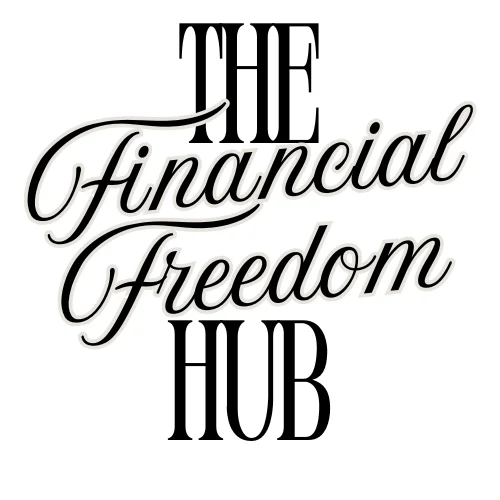Quick Answer: You can start building credit at 18 by applying for an accessible line of credit, like a student or secured credit card. Consistent good behavior, like on-time payments and keeping your balances low, will help grow your score.
18 is the age when most of us start building credit because it’s the age when you can apply for most lines of credit on your own. If you’re considering getting a credit card, applying for a car loan, filling out a leasing application or applying for student loans, all of these things will probably ask for your credit score.
Building credit at 18 might seem intimidating, but with the right steps, you can establish a strong financial foundation early on. Here’s how.
Understanding Credit Basics
Before diving in, it’s essential to grasp what credit is. Your credit score is a 3-digit number calculated based off your financial history that generally ranges from 300 – 850. Your credit score is typically calculated off of these factors:
- Payment history (35%): This is your history of making payments on-time. It accounts for most of your credit score, which means that missing or being late for payments can also have a bad effect on your credit.
- Credit utilization ratio (30%): This is the ratio of how much credit you’ve spent compared to the amount of credit you have available. So if you have a credit card with an $800 credit limit and you’ve charged $600, you’ve used 75% of your total credit. You want to keep your utilization ratio below 30%.
- Age of Credit (15%): This refers to how long you’ve had a line of credit open. The longer you’ve had a credit account open, the better.
- Credit Mix (10%): This is how many different types of credit accounts are open in your name. For example, having only credit cards open isn’t as strong as a mix as having a credit card and a car loan in your name.
- Hard Inquiries (10%): This is when a lender or credit card issuer does a “hard pull” of your credit to evaluate you for a new line of credit. These don’t have much of an impact on your credit unless you submit a large number of applications in a short window of time. Doing that looks desperate and can hurt your credit.
What Credit Score Do I Start Out With?
Most of us start out with a score somewhere between 500 – 700.
Although some people think that they get a credit score right when they turn 18, if you’ve never applied for a line of credit, then chances are you don’t have a credit score. When you first start out, chances are that your credit score is going to be on the lower end. When you consider how credit scores are calculated, it makes sense – you have a short credit history don’t have much of a record of making payments.
But as your credit accounts age, you apply for new lines of credit, get access to larger amounts of credit and make consistent on-time payments, you’ll see your score go up. We get into more tips below.
Steps to Build Credit at 18
1. Apply for a Student Credit Card
If you qualify, I recommend applying for a student credit card when you’re just starting to build your credit. Most credit cards for first-time borrowers aren’t fantastic – they have low credit limits and not as many perks as the better cards – but some cards can offer really great rewards geared towards students that other credit cards may not, and with lower credit requirements.
2. Find a Cosigner
A cosigner can help you build credit at 18 by increasing your chances of being approved for a loan you might not qualify for on your own. Since the cosigner agrees to take responsibility if you can’t make payments, lenders see the arrangement as less risky and often offer better terms. As you make on-time payments, that positive activity gets reported to the credit bureaus under your name (as long as you’re listed as the primary borrower), which helps establish and grow your credit history. Just be sure to stay on top of payments—missed ones can hurt both your credit and your cosigner’s.
Finding a cosigner is especially helpful for larger loans or financial obligations, like student loans, auto loans or leasing applications.
3. Don’t Be Afraid to Check Your Credit
Regularly checking your credit report helps you stay informed about your credit status and identify any errors. Many services offer free credit score monitoring, allowing you to track your progress and make informed decisions. (Like us at Credit.com – sign up to see your credit score for free.)
4. Become an Authorized User
One of the simplest ways to start building credit is by becoming an authorized user on a parent’s or guardian’s credit card. This means their credit history with that card can positively impact your credit score, provided they maintain good financial habits. Ensure the credit card issuer reports authorized user activity to credit bureaus; otherwise, it won’t affect your credit.
5. Get a Secured Credit Card
If a student card isn’t an option, don’t stress — there’s something called a secured credit card. Here’s how it works: you pay a refundable deposit (like $200), and that becomes your credit limit. Then you use it just like any other card. Because your deposit is securing your line of credit, most people with no credit or low credit are often approved for secured credit cards.
Using a secured card responsibly — buying small things and paying it off right away — helps build your credit quickly. Over time, some credit card issuers will even upgrade you to a regular, unsecured card without requiring you to apply separately.
6. Know What Bills Do and Don’t Affect Your Credit (And Pay Them All On-Time)
Not all bills affect your credit directly, but some can — and all of them can cause problems if left unpaid. For example, if you forget to pay your cell phone or utility bill and it gets sent to collections, that’s going to hurt your score.
Some services let you report things like your streaming subscriptions or utility payments to help increase your credit score.
Starting your credit journey at 18 sets the stage for financial opportunities in the future. By understanding credit basics, using credit responsibly, and monitoring your progress, you can build a strong credit profile that opens doors to various financial options.
FAQs
How long does it take to build credit from scratch?
Building a solid credit history typically takes six months to a year of consistent, responsible credit use.
Can I build credit without a credit card?
Yes, by making timely payments on student loans, becoming an authorized user, or using credit-builder loans.
Does checking my credit score hurt it?
No, checking your own credit score is a soft inquiry and doesn’t affect your credit.
What’s the difference between a secured and unsecured credit card?
A secured card requires a deposit as collateral, while an unsecured card does not. Secured cards are often used to build or rebuild credit.


